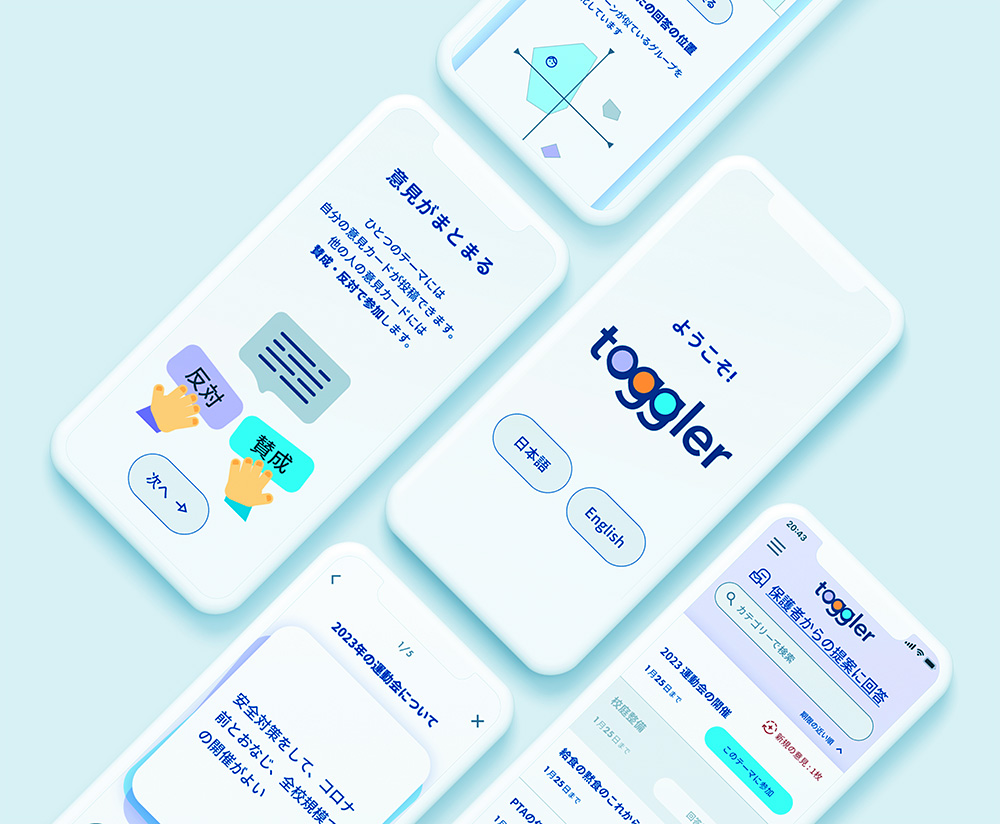
toggler
Responsive web design for community social good ☻
Create a tool that Japanese schools and parents can use to better communicate about their children.
Role
UX design from conception to high-fidelity prototype, Writing, Illustration
Tools
Figma, Adobe Illustrator
Duration
December 2022 to January 2023
Who creates the educational environment?
Background
Local communication will impact student life (which comes only once!)
Old-fashioned, totalitarian school rules have been in place for decades. Need to consider whether the restrictions on events and daily life for children are appropriate.
The hard work environment for teachers and parents.
A need for tools to reduce the burden of meetings and other time-consuming decisions.
Dedicated mobile app and web versions
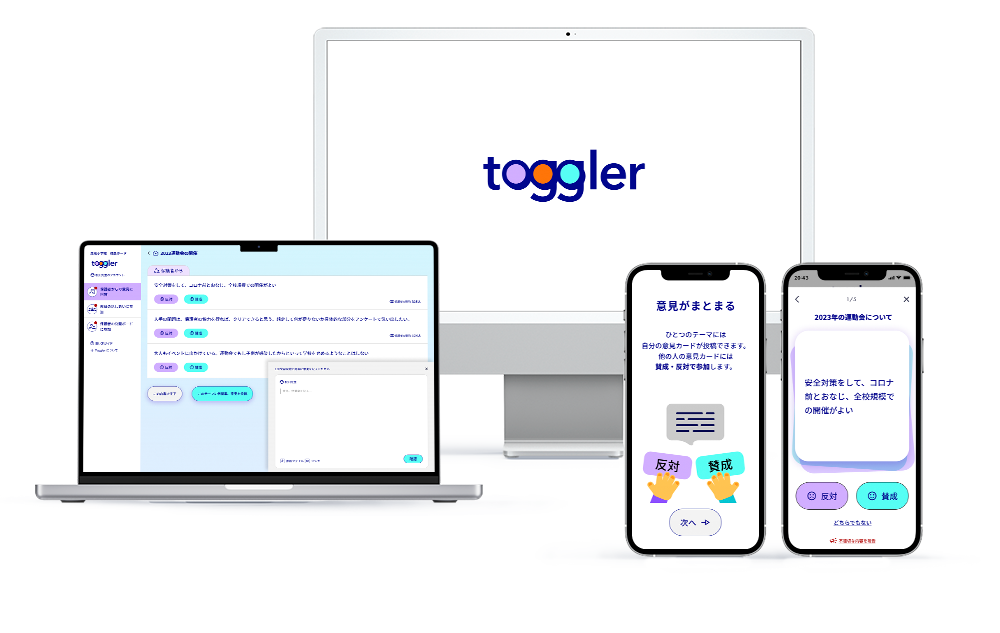
Interactive Communication
On the parents' side:
A dedicated mobile app
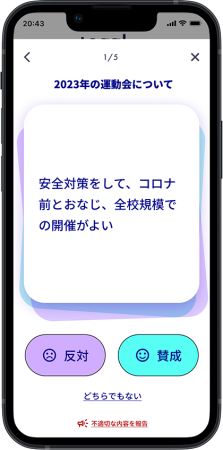
Parents create voting cards and vote anonymously on each card.
On the teachers' side:
Web app
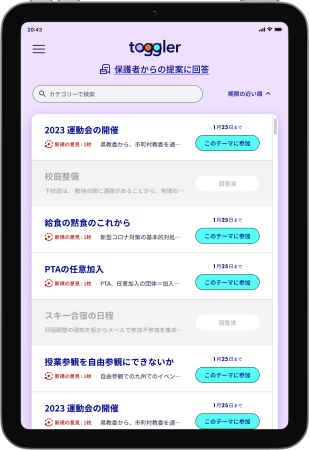
In response to the majority opinions, teachers will provide feedback to parents on future actions after discussing those in the teacher’s version of the tool.
*System ideas are based on the rough consensus board of the Taiwanese government. Arranged for the use of Japanese people.
Challenge
Half of the interviewees in the primary study showed some sort of rejection of the initial idea.
<Factors>
- Fear of increased communication with others
- The term “rough consensus” sounds too abstract in Japanese
Ideation Process
Understanding the Users
Primary Research
Pain Point Findings
Value Proposition
Primary Research
Research Goal
What are the solutions and the bottlenecks with respect to addressing the current problems in education? Explore the context.
Participants
Four working mothers who have school-age children, and two teachers.
Residents
Kanto, Kyusyu, and Shikoku areas in Japan
Age
30–65
Method
Moderated and unmoderated interviews
Pain Point findings
Lack of time
The working environment of both teachers and parents is extraordinarily busy.
No interactive communication
Although they participate in surveys from schools, parents do not know how the school uses the results.
Pressure to do nothing
The claustrophobic rural atmosphere makes parents to keep their names out of the spotlight.
Is it feasible to create an application that would address the concerns that the interviewees mentioned?
Design Process
Design & Refine
User Flow & Paper Wire Frames
Low-Fi Prototype
Usability Test
High-Fi Prototype
Usability Test
Persona
The personas – so as not to lose sight of the criteria of “who we are creating this for.”
Whenever the team is unsure about a feature or design decision, they can return to this point.

Mami
Age: 38, Hometown: Kanagawa, Japan
A working mother who has two public school-aged children.

Toru
Age: 43, Hometown: Fukuoka, Japan
A 6th-grade homeroom teacher in a public school in Fukuoka.
Connect small-voice majority and conservative schools
High-fidelity prototype
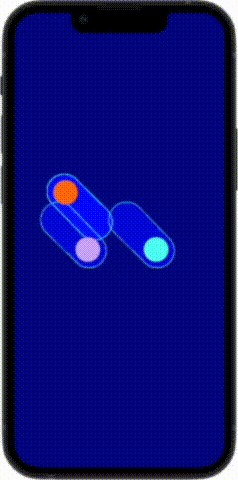
Parents' version
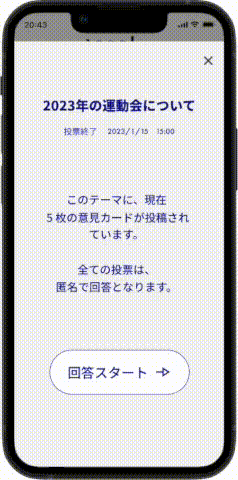
Mainly use the dedicated mobile app. Each opinion card is shown in a game-like manner to encourage participation. Participation is anonymous.
Teachers' version
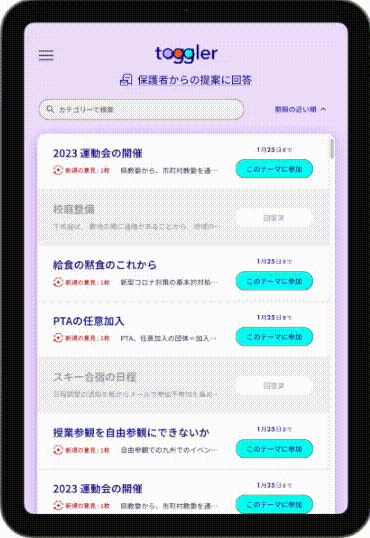
Mainly use the web version. Multiple pieces of information are shown on one screen to process tasks in a shorter time. Participation uses their name.
Usability study with the low-fi prototype of the dedicated mobile app
Participants
Five working women and men who have school children
Residents
Kanto and Shikoku areas in Japan
Age
30–45
Method
Moderated and unmoderated interviews
Findings of the usability study
Before
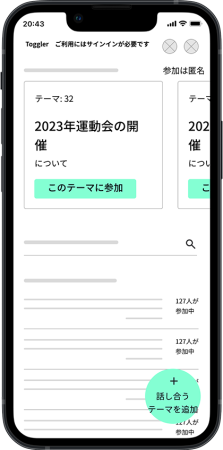
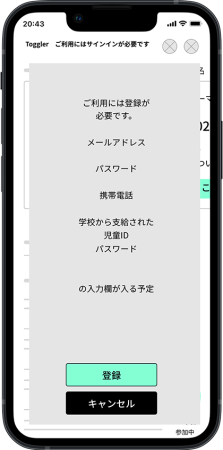
2/5 people were confused by the registration screen being displayed at the first action after clicking the home screen.
After
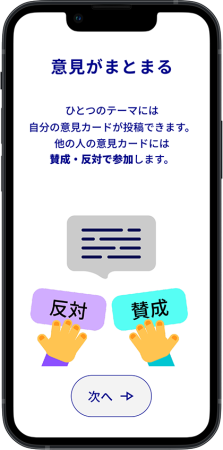
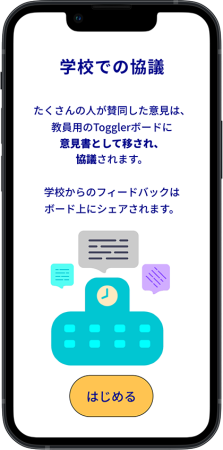
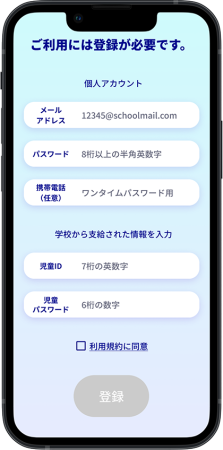
Display the registration screen at the end of the description screens.
Before
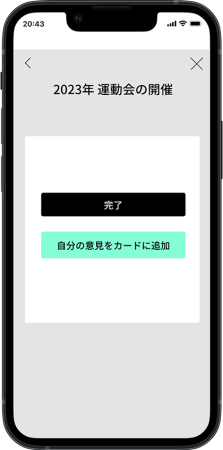
2/5 people stopped contributing because they did not know what the CTA button instructions “Add alternative ideas to the theme” were referring to.
After
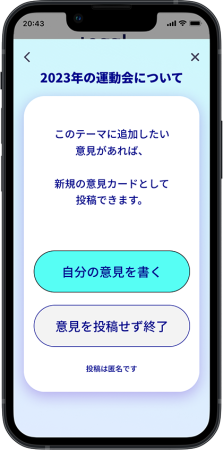
Re-examine the name of the CTA button.
Add more guidance to the page.
Change the CTA button text from “Add your opinion to the cards” to “Write your opinion.”
Before
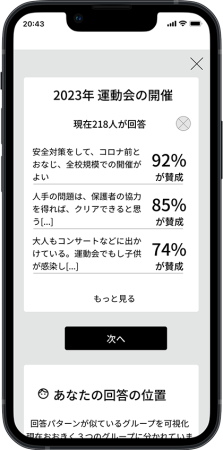
3/5 were distracted by the text links before seeing “Position of your answers.”
After
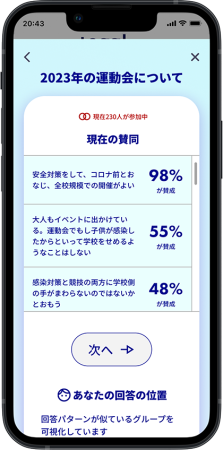
Redesign to reduce the actions at the result screen.
Prevent blow-up
The participants can post only alternative suggestions without direct reps for opinions.
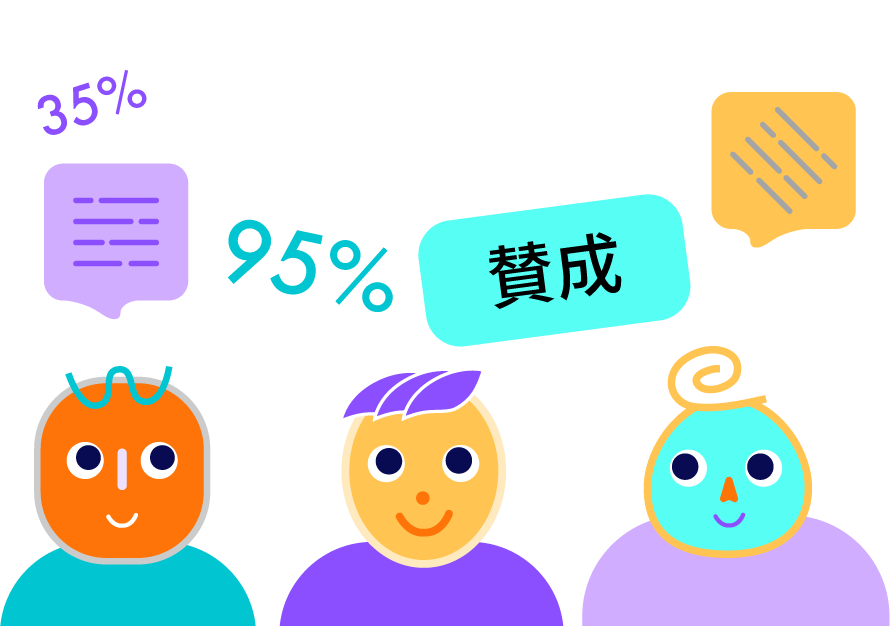
Impact
I believe we have created a base in terms of scooping up voices from the majority of small voices.
What I learned
I excluded students from the pool of users after the earlier research against my initial plan. Both teachers’ and parents’ rejection of children-involvement in digital chats was so strong that it seemed impractical to introduce it on a per-school basis.
Although the system can be for business or politics, choosing the educational site as the first user context creates the experience of how we can change the community around us with our actions, and it becomes hopeful for children. Those who rejected the “communication board” agreed with me when I described this basic thought.
Some communities are beginning to adjust school rules to reflect community input. I felt that this tool can meet the demands of the times.
Further steps
A larger-scale test
The need for personal anonymity varies with respect to regional status.
It is necessary to know what measures will be effective through conducting a more practical and larger study.
Monetize
Present ideas for funding sources to provide a sustainable service.
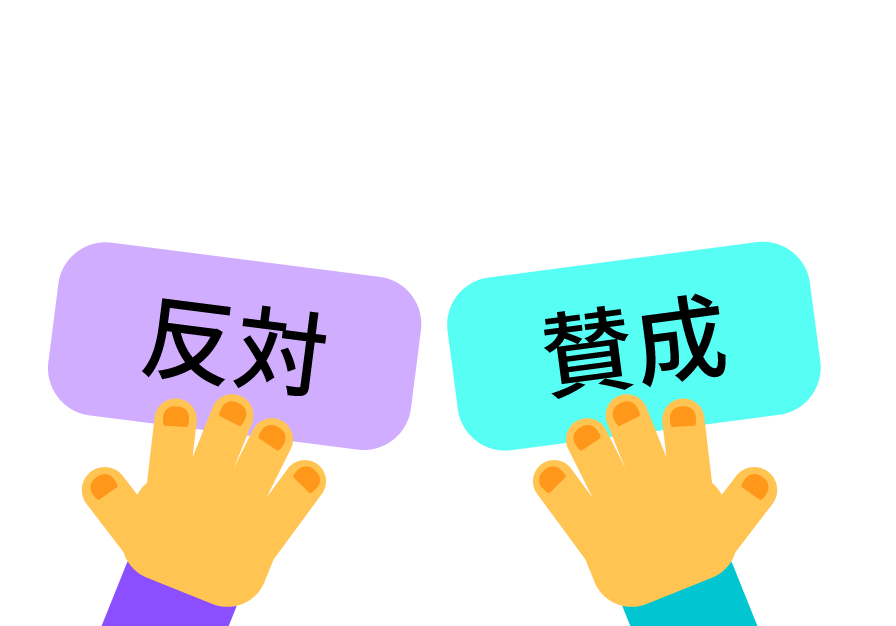
Reiko Yoshida Bilingual visual designer in Tokyo | Freelance | Branding | UX UI | Graphic design | Localization | Available in Japanese and English